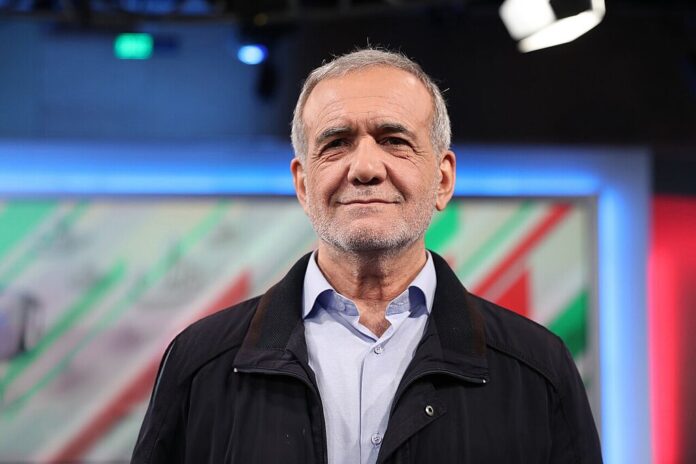Masoud Pezeshkian, a surprise winner in Iran’s presidential election, promises a moderate approach amidst challenges
Masoud Pezeshkian’s victory in Iran’s 2024 presidential election has sent shockwaves through the country’s political landscape. Known as a reformist within Iran’s ruling elite, Pezeshkian’s win defied expectations, especially against his hardline rival Saeed Jalili. Unlike the traditional liberal reformists, Pezeshkian represents a faction seeking moderate reforms within the framework of the Islamic Republic’s ideology.
Reformists previously held power from 1997 to 2005 and were part of a coalition during Hassan Rouhani’s presidency from 2013 to 2021. They advocate for a more open and democratic society, although Pezeshkian’s campaign notably did not emphasize these themes. Instead, he focused on addressing Iran’s economic challenges exacerbated by Western sanctions, which he attributed to the radical anti-Western stances of conservative factions.
Embed from Getty ImagesDuring his campaign, Pezeshkian enlisted the support of Mohammad Javad Zarif, Iran’s former foreign minister and key negotiator of the 2015 nuclear deal. Despite Zarif not being a strict reformist, his endorsement underscored Pezeshkian’s stance on engaging with the West to resolve Iran’s economic woes.
Analysis:
Political: Pezeshkian’s presidency marks a shift towards moderate policies within Iran’s leadership, contrasting with the more hardline approaches of recent years. His ability to navigate relations with Iran’s conservative factions and the Supreme Leader, Ayatollah Ali Khamenei, will be crucial in determining the extent of his reformist agenda.
Social: The election of a reformist like Pezeshkian reflects a desire among Iranians for change, particularly concerning economic stability and international relations. However, the extent to which social freedoms will expand remains uncertain, given the limitations imposed by the conservative elements of the regime.
Economic: Pezeshkian’s emphasis on economic diplomacy and engagement with the West suggests a potential shift in Iran’s foreign policy priorities. Economic reforms and efforts to ease sanctions could provide relief to Iranian citizens grappling with inflation and economic hardship.
International: His presidency could influence Iran’s foreign policy dynamics, especially regarding its stance towards the West, including the United States and European Union. However, significant constraints exist due to the Supreme Leader’s authority over critical matters such as military and regional policies.
Regional: While Pezeshkian advocates for a more moderate foreign policy approach, particularly towards the West, his influence over Iran’s regional activities, led by entities like the Quds Force, remains limited. The Supreme Leader’s firm control over security and strategic decisions underscores continuity in Iran’s regional posture.
